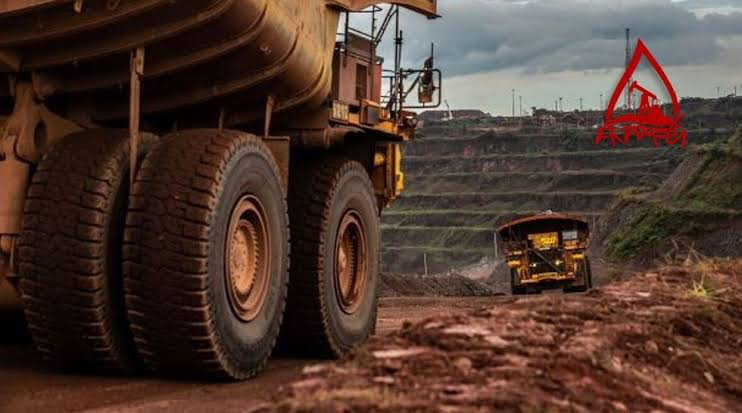Mauritania is experiencing exciting times as it transforms its economy through mining, green hydrogen, and natural gas. This nation, connecting West and North Africa, has ambitious plans for economic growth.
During his campaign, President Ould Ghazouani promised to scale up the mining industry if re-elected. The African Development Bank highlights the sector’s importance to the Mauritanian economy.
Mauritania boasts vast mineral wealth, with billions of tons of iron ore deposits. It is the second-largest producer of iron ore in Africa. In 2022, the country produced 13 million tons of iron ore, driven by reforms and attractive mining policies, according to the Extractive Industries Transparency Initiative. Mining sources indicate that production is on track to double by 2030.
The mining sector is central to Mauritania’s economy. The African Development Bank’s African Economic Outlook 2024 projects real GDP growth at 4.2% in 2024 and 5.5% in 2025. This growth surpasses forecasts for African and global growth, largely due to mining activities.
In 2023, the mining sector made headlines. Gold mining company Tasiast Mauritanie Limited SA produced 620.8 thousand ounces of gold. SNIM (Société Nationale Industrielle et Minière de Mauritanie) hit a record output of 14.01 million tons of iron ore. The extractive industries are not just pillars of the economy; they are its most dynamic engines of growth.
The mining sector’s contribution to Mauritania’s GDP rose from 18% in 2021 to 24% in 2022. Increased extraction of metal ores, especially gold, drove this growth. The sector contributed around 30% of national revenues in 2022, with SNIM, Tasiast Mauritanie Limited SA, and Mauritanian Copper Mines leading the way.
Global steel production is shifting towards less carbon-intensive processes. This change increases demand for high-quality ores and DRI pellets, which require less energy and produce less waste. Mauritania, especially SNIM, is poised to benefit from this trend.
Mauritania plans to double its iron ore production capacity to over 45 million tons annually within the next decade. Significant investments in infrastructure and logistics are necessary to achieve this. The focus is on producing high-grade iron ore and developing iron ore pellets, aligning with the global move towards cleaner steelmaking processes.
The African Development Bank is addressing the energy challenge with initiatives like the Desert-to-Power project, promoting solar energy and improving electricity access. Medium to long-term plans include moving up the value chain to produce green steel, initially steel pellets.
Electricity is crucial for these industrial ambitions. Mauritania is also eyeing the green hydrogen market, aiming to become a hub for this clean energy source. The synergy between mining, green hydrogen, and gas development will require substantial infrastructure, benefiting the broader economy.
Mauritania is making bold moves in green hydrogen. The Aman project, a $40 billion venture, aims to produce 1.7 million tons of green hydrogen and 10 million tons of green ammonia annually. This project could boost Mauritania’s GDP by 50-60% by 2035. The Nour project, another green hydrogen initiative, has the potential to be one of the largest globally by 2030. Meanwhile, SNIM and ArcelorMittal are exploring joint green steel production, positioning Mauritania as a leader in sustainable steel production.
Mauritania’s natural gas reserves are impressive. The Grand Tortue Ahmeyim gas project is set to start production by the end of 2024, with the Banda BirAllah gas field following soon after. Uranium mining is also on the horizon, with the Tiris project expected to start in 2026.
Transparency is key to Mauritania’s success. SNIM’s involvement in the Extractive Industries Transparency Initiative ensures that mining benefits are shared equitably. The African Development Bank supports Mauritania in addressing development challenges, from environmental compliance to strengthening human capital and skills development.
Security in the volatile Sahel region is crucial for sustained growth. Mauritania has remained stable, attracting investment and fostering inclusive growth. However, the heavy reliance on mining exports makes the economy vulnerable to global price fluctuations, highlighting the need for economic diversification. The benefits of the mining sector must be reinvested into the national economy, social sectors, and enabling infrastructure.
With its rich natural resources and strategic investments, Mauritania is poised for a significant leap forward. Good policies and governance will enable Mauritania to harness its natural wealth and build a prosperous, sustainable future.
Source: ESI Africa



